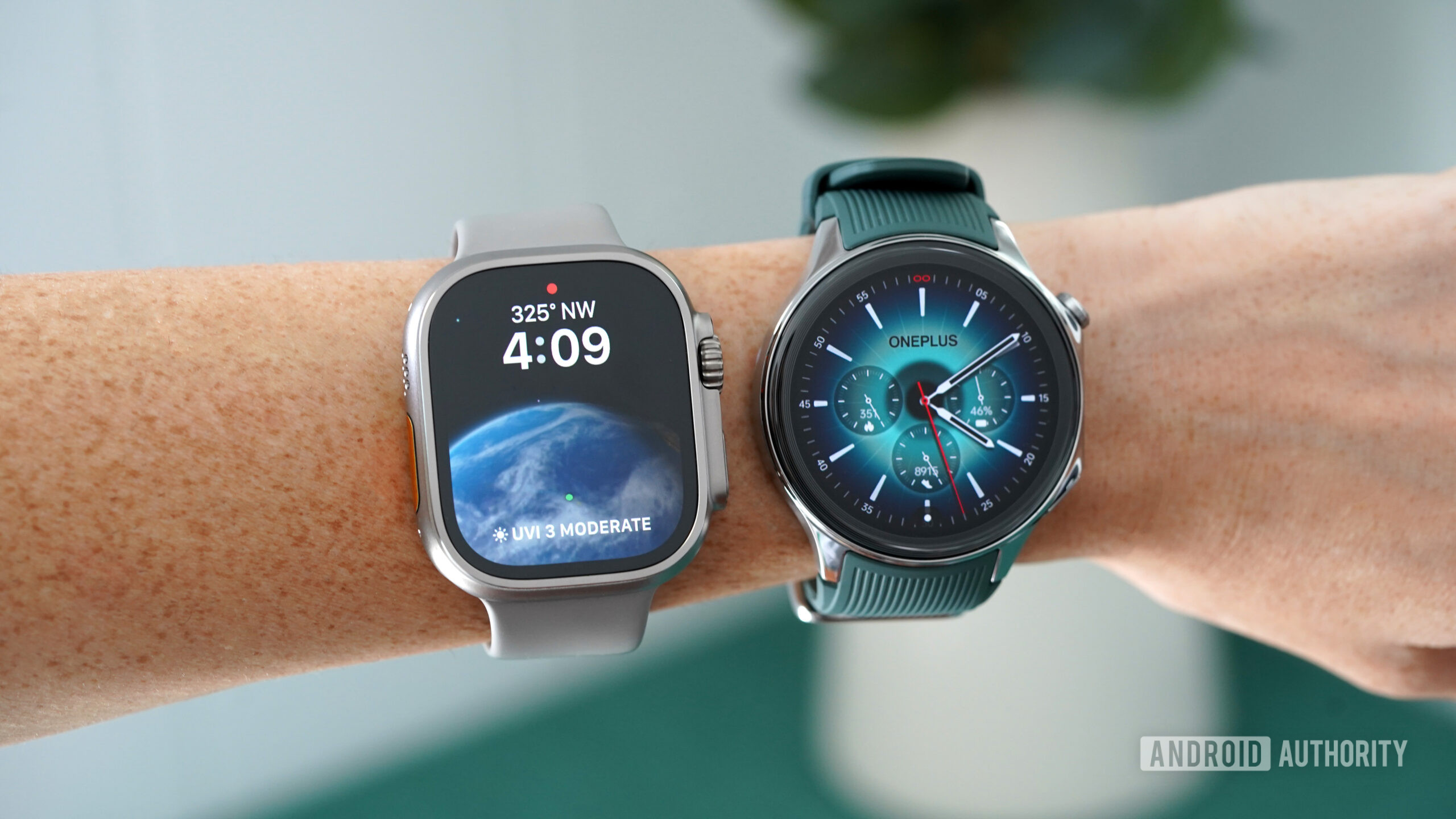
Kaitlyn Cimino / Android Authority
TL;DR
- The US Department of Justice (DOJ) filed a lawsuit against Apple, accusing it of creating a monopoly with the iPhone.
- In response to the lawsuit, Apple revealed it spent three years working on Android compatibility for the Apple Watch but ultimately scrapped it.
- The lawsuit highlights the general difficulties of using Apple products with other brands, making it expensive for users to switch ecosystems.
In a surprising turn of events, Apple revealed that it previously explored making the Apple Watch compatible with Android phones. This comes as part of the company’s response to a recent DOJ lawsuit accusing it of creating a monopoly with the iPhone, particularly by making its products difficult to use with other brands.
While Apple is known for its “walled garden” approach, where its devices work best within its ecosystem, it seems like it did give Android compatibility a shot, at least with the Apple Watch.
We’ve previously had reports claiming that Apple was working on an Android-compatible Apple Watch, but this is the first time the company seems to have confirmed it. According to 9to5Mac, Apple confirmed that it spent three years trying to make the Apple Watch Android-compatible before ultimately scrapping the project due to “technical limitations.”
Since the Apple Watch only works with iPhones, users who want to switch away from iPhones have to give up their Apple Watch and buy a new smartwatch compatible with Android. When I switched to a foldable phone last year, I had to sell my Apple Watch for a fraction of its original price.
Would you buy an Apple Watch if it supported Android?
111 votes
The US DOJ lawsuit against Apple goes beyond just the Apple Watch’s limited compatibility. The lawsuit accuses Apple of employing several practices that create hurdles for its users who want to use products/services from other brands. These include blocking “super apps” that could simplify switching from iPhones, hindering cloud-based gaming apps, purposefully making messaging less functional between iPhones and Android devices, and preventing third-party developers from creating competing digital wallets that work with Apple Pay.
Apple has since denied these claims, stating the lawsuit is “wrong on the facts and the law.”
There’s a clear advantage for consumers if all devices, regardless of brand, could work together flawlessly. However, Apple’s strength lies in its tightly woven ecosystem. The seamless integration between iPhones, iPads, and Apple Watches is one of its biggest selling points. It’s worth noting that even Samsung’s Galaxy Watches offer some features that only work with Samsung phones. So, forcing Apple to open up its ecosystem might be beneficial for broader compatibility, but it could also affect the company’s core competency.








